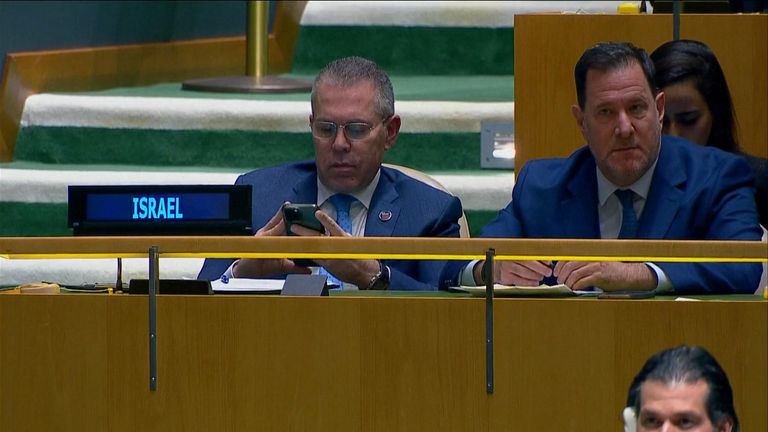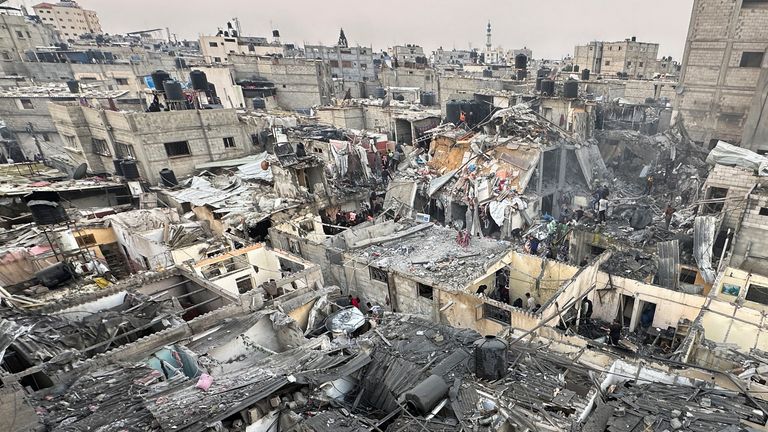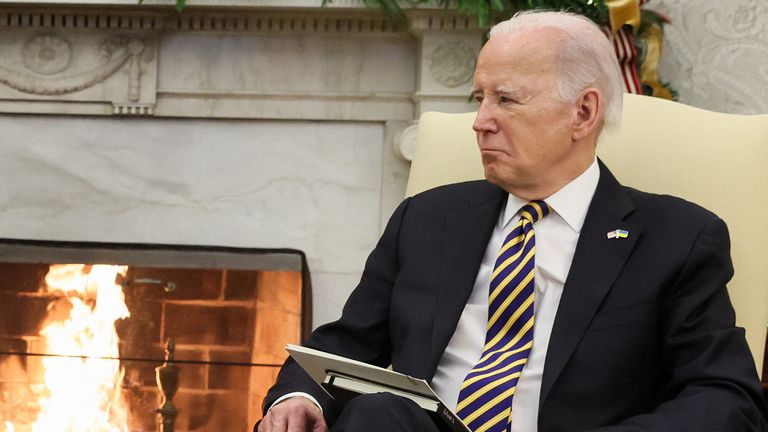On Gaza, the hard numbers reflect a hardening of the world view.
Of 193 member states in the United Nations General Assembly, 153 supported a ceasefire in Gaza.
It’s a big increase on the last time a similar vote was taken in October – a measure of how global opinion is trending with time.
A vote in New York that isn’t legally binding doesn’t change anything on the ground in Gaza, of course.
Follow latest updates on the conflict
The significance is in the symbolism. A growing majority view in favour of ceasefire increases pressure on the minority.
Countries like the United States, which voted against, and the United Kingdom, which abstained, are left increasingly isolated.
If Israel turned a deaf ear to the UN vote, it won’t have missed the voice of its biggest ally.
The United States has shuffled in its stance over the course of this conflict, amid a growing international outcry.
The US president appeared to shuffle further in pointed remarks hours before Tuesday’s vote.
In an off-camera briefing, referring to support enjoyed by Israel, Joe Biden said it was “starting to lose that support by the indiscriminate bombing that takes place”.
The president raised concerns that he had with the Israeli government, saying Prime Minister Benjamin Netanyahu “has to change this government”.
“This government in Israel is making it very difficult,” Biden said.
He said that Israel “can’t say no” to a Palestinian state, adding: “We have an opportunity to begin to unite the region… and they still want to do it.
“But we have to make sure that Bibi [Netanyahu] understands that he’s got to make some moves to strengthen… you cannot say no Palestinian state… that’s going to be the hard part.”
Biden went as far as to highlight Israel’s far-right national security minister Itamar Ben-Gvir when he spoke of “the most conservative government in Israel’s history”.
Read more:
Videos ‘show Israeli troops destroying property in Gaza’
‘I didn’t sleep for 49 days’: Released hostages describe terror of Hamas captivity





